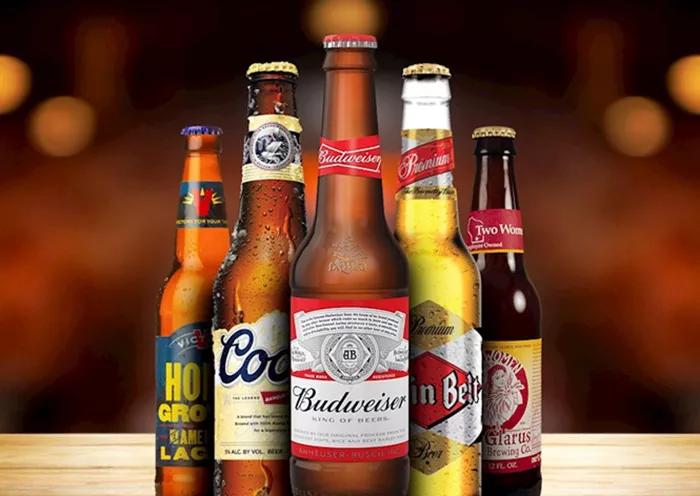Heilbronn, Germany – A groundbreaking ceremony was held last week for a new facility in southwest Germany that will produce 200 tonnes of protein annually from upcycled beer waste. Berlin-based startup ProteinDistillery officially launched its Protein Competence Center, which will manufacture Prew:tein—a yeast-based protein designed to enhance the texture, taste, and functionality of plant-based meat, dairy, and bakery products.
The Protein Competence Center is situated at Unilever’s Knorr Campus in Heilbronn, a city known for its strong presence in food industry innovation. The ceremony was attended by key figures, including German Minister of Food and Agriculture Cem Özdemir, Heilbronn’s Mayor Harry Mergel, and Member of Parliament Zoe Mayer, alongside notable guests such as artist Tim Bengel and former VfB Stuttgart goalkeeper Timo Hildebrand, co-owner of the vegan restaurant Vhy! in Stuttgart.
ProteinDistillery’s new facility will focus on producing Prew:tein from brewer’s yeast, a byproduct of beer production that is often underutilized. Through a patented fermentation process, the yeast is converted into a functional protein that can replace animal-derived proteins and plant-based additives in various products. Prew:tein serves as an emulsifier, gelling agent, binder, and foaming agent, offering versatile applications across plant-based food products such as vegan burgers, dairy alternatives, and bakery goods.
“The Protein Competence Center in Heilbronn represents a significant step towards sustainable, locally produced proteins that are resource-efficient and independent of agricultural land,” said Marco Ries, co-founder and managing director of ProteinDistillery. “This is a real revolution for the food industry.”
Özdemir also highlighted the environmental and economic benefits of the new venture. “Turning brewing waste into valuable plant-based protein is forward-thinking, particularly at a time when meat consumption is declining, and the demand for alternative proteins is on the rise,” he said.
The process used by ProteinDistillery, known as biomass fermentation, involves harnessing the rapid growth and high-protein yield of microorganisms to produce large quantities of food ingredients. This method is similar to the process used by Quorn to make its mycoprotein, which has been popular for decades in meat alternatives.
Prew:tein boasts a protein content of over 75% and a digestibility score of 1.0—the highest possible rating, comparable to egg and milk proteins. Its functional properties allow it to enhance the texture and consistency of plant-based products, making them more similar to their animal-based counterparts. For instance, it can help vegan burgers achieve a more realistic texture and improve the meltability of vegan cheeses. It also serves as an effective binder and stabilizer in baked goods such as cakes and muffins, replacing eggs and non-dairy whipping creams with a more sustainable option.
To showcase the product’s potential, Vhy! served Maultaschen—a type of dumpling made with Prew:tein—at the event. The vegan restaurant, which Hildebrand co-owns, plans to introduce plant-based dishes made from the protein to local corporate canteens, including those at companies like Porsche and Daimler.
Production at the Protein Competence Center is set to begin in April 2025, with an ambitious goal of avoiding nearly two million kilograms of CO2 emissions annually. “With a facility of under 1,000 square meters, we will produce the equivalent protein of 20 million chicken eggs,” said Christoph Pitter, co-founder and managing director of ProteinDistillery.
In addition to environmental advantages, the new facility offers significant business potential. ProteinDistillery recently secured €15 million in seed funding to further develop its technology and scale up production. The company’s move to Heilbronn is strategic, with the region being a hub for research and food industry production. The new facility aims to foster greater collaboration between academia and industry to drive innovation in sustainable protein production.
Germany is Europe’s largest market for plant-based foods, with sales of plant-based meat and dairy products reaching €2.2 billion in 2023, an 8% increase from the previous year. With growing consumer demand for sustainable alternatives, ProteinDistillery’s venture could play a key role in reshaping the future of food.
ProteinDistillery is not the only company exploring the potential of upcycled brewer’s yeast. Dutch startup Revyve and French company Yeasty are also developing sustainable ingredients from brewing byproducts, with Yeasty recently unveiling a method to reduce the bitterness of brewer’s yeast, producing a versatile flour for alternative protein and pet food products.
The Protein Competence Center marks a promising milestone in the food industry’s ongoi
ng efforts to adopt more sustainable and efficient production methods while meeting the growing demand for plant-based alternatives.
You Might Be Interested In:


